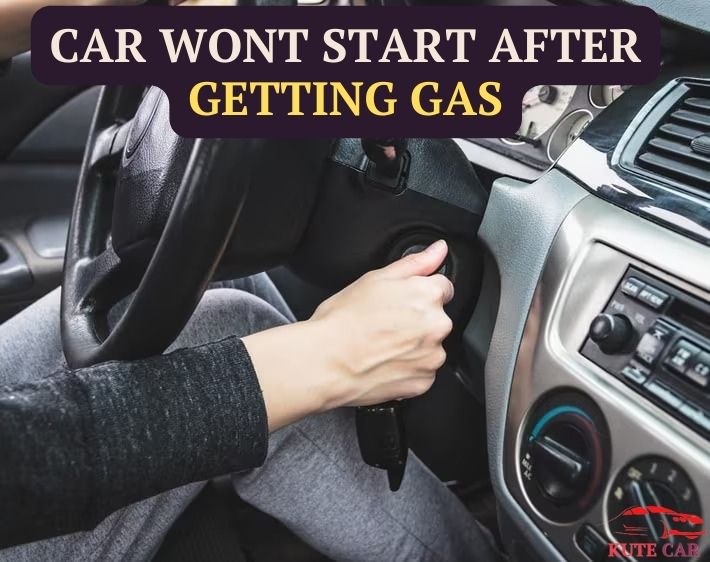If your car has trouble starting after getting gas, it could be due to a faulty fuel pump or a clogged fuel filter. This is a common issue that can be resolved by checking and replacing these components if necessary.

Credit: www.kutecar.com
Common Reasons For Car Starting Issues After Refueling
Car starting issues after refueling can be caused by several common reasons, including fuel quality, vapor lock, and evaporative emission system (evap) problems. Poor fuel quality can lead to clogged fuel injectors or a dirty fuel filter, affecting the car’s starting ability.
Vapor lock occurs when fuel vaporizes before it reaches the engine, causing a disturbance in the fuel system. This can happen if the fuel lines are too close to a hot engine component. Evap problems can result from a faulty purge valve or a leak in the fuel vapor system.
These issues can cause a vacuum leak, preventing the necessary fuel and air mixture for starting the engine. If your car experiences trouble starting after getting gas, it is essential to have it inspected by a qualified mechanic to diagnose and resolve the specific problem.
Symptoms Of Starting Trouble After Fueling
Car trouble after fueling can be frustrating. One common symptom is the engine cranking without ignition. Another sign is rough idling right after refueling. Additionally, the car may stall immediately after filling up. These issues can indicate a problem with the fuel system.
The fuel pump or the fuel filter might be clogged, preventing proper fuel flow. Another possibility is a faulty fuel pressure regulator. If you experience these symptoms, it’s important to have your car checked by a mechanic. They can diagnose the issue and help prevent further damage to your vehicle.
Don’t ignore starting trouble after fueling, as it could lead to more severe engine problems if left unresolved.
Troubleshooting Steps For Car Starting Issues After Refueling
Car starting issues after refueling can be frustrating. One possible cause is a loose or faulty fuel cap. Checking the fuel cap ensures a tight seal, preventing air from entering the system. Another troubleshooting step is to clean the evap system.
Over time, dirt and debris can accumulate, causing starting problems. Inspecting the fuel pump and filter is also crucial. A clogged fuel filter or a malfunctioning fuel pump can lead to difficulties starting the car after getting gas. These troubleshooting steps can help diagnose the issue and get your car running smoothly again.
Preventive Measures To Avoid Starting Problems After Refueling
Car owners often encounter starting problems after refueling their vehicles. To prevent such issues, consider these preventive measures. Firstly, choose fuel stations that are known for providing quality fuel. Secondly, when filling up your car, do so slowly to minimize any chances of air getting trapped in the fuel system.
Lastly, regular maintenance of the fuel system is crucial in ensuring smooth starts after refueling. By following these guidelines, you can avoid frustrating situations and maintain the optimal performance of your car.
Conclusion
If your car is having trouble starting after getting gas, it’s important to address this issue promptly to prevent further problems. There could be several causes for this issue, such as a faulty fuel pump or fuel filter, a leak in the fuel system, or even an issue with the spark plugs.
Regular maintenance and inspection of these components can help prevent starting issues. It’s also crucial to ensure that you are using the correct octane level of gasoline for your car, as using the wrong type can cause starting problems. If you continue to experience difficulty starting your car after refueling, it may be necessary to consult a mechanic for a more thorough diagnosis and repair.
Remember, early intervention can save you time, money, and the hassle of being stranded with a non-starting vehicle.

